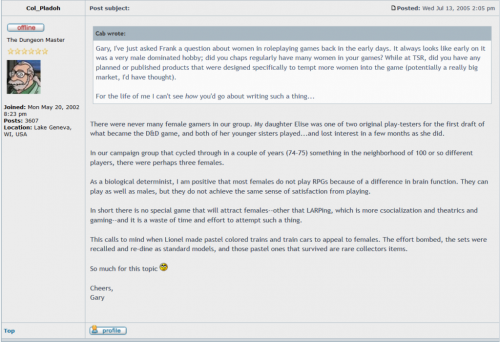by Amy Yurkanin
ProPublica is a nonprofit newsroom that investigates abuses of power. Sign up to receive our biggest stories as soon as they’re published.
Register for our Nov. 21 virtual discussion, where our reporters take you inside ProPublica’s reproductive health coverage.
Georgia officials have dismissed all members of a state committee charged with investigating deaths of pregnant women. The move came in response to ProPublica having obtained internal reports detailing two deaths.
ProPublica reported in September on the deaths of Amber Thurman and Candi Miller, which the state maternal mortality review committee had determined were preventable. They were the first reported cases of women who died without access to care restricted by a state abortion ban, and they unleashed a torrent of outrage over the fatal consequences of such laws. The women’s stories became a central discussion in the presidential campaign and ballot initiatives involving abortion access in 10 states.
“Confidential information provided to the Maternal Mortality Review Committee was inappropriately shared with outside individuals,” Dr. Kathleen Toomey, commissioner of the state Department of Public Health, wrote in a letter dated Nov. 8 and addressed to members of the committee. “Even though this disclosure was investigated, the investigation was unable to uncover which individual(s) disclosed confidential information.
“Therefore, effective immediately the current MMRC is disbanded, and all member seats will be filled through a new application process.”
A health department spokesperson declined to comment on the decision to dismiss the committee, saying that the letter, which the department provided to ProPublica, “speaks for itself.” Georgia Gov. Brian Kemp’s office also declined to comment, referring questions to the health department.
Under Georgia law, the work of the maternal mortality review committee is confidential, and members must sign confidentiality agreements. Those members see only summaries of medical records stripped of personal details, and their findings on individual cases are not supposed to be shared with the public — not even with hospitals or with family members of women who died.
The health department’s letter states that there could be new steps to keep the board’s deliberations from public view. The letter said officials might change “other procedures for on-boarding committee members better ensuring confidentiality, committee oversight and MMRC organizational structure.”
Maternal mortality review committees exist in every state. They are tasked with examining deaths of women during a pregnancy or up to a year after and determining whether they could have been prevented.
Georgia’s had 32 standing members from a variety of backgrounds, including OB-GYNs, cardiologists, mental health care providers, a medical examiner, health policy experts and community advocates. They are volunteer positions that pay a small honorarium.
Their job is to collect data and make recommendations aimed at combatting systemic issues that could help reduce deaths and publish them in reports. The Georgia committee’s most recent report found that of 113 pregnancy-related deaths from 2018 through 2020, 101 had at least some chance of being prevented. Its recommendations have led to changes in hospital care to improve the response to emergencies during labor and delivery and to new programs to increase access to psychiatric treatment.
The health department’s letter states that the “change to the current committee will not result in a delay in the MMRC’s responsibilities.” But at least one other state has experienced a lag as a result of reshaping its committee. Idaho let its maternal mortality review committee legislation expire in July 2023, effectively disbanding the committee after lobbyist groups attacked members for recommending that the state expand Medicaid for postpartum women. Earlier this year, Idaho’s Legislature reestablished the committee, but new members weren’t announced until Nov. 15. There is now more than a yearlong delay in the review process.
Reproductive rights advocates say Georgia’s decision to dismiss and restructure its committee also could have a chilling effect on the committee’s work, potentially dissuading its members from delving as deeply as they have into the circumstances of pregnant women’s deaths if it could be politically sensitive.
“They did what they were supposed to do. This is why we need them,” said Monica Simpson, executive director of SisterSong, one of the groups challenging Georgia’s abortion ban in court. “To have this abrupt disbandment, my concern is what we are going to lose in the process, in terms of time and data?”
One objective of any maternal mortality review committee is to look at the circumstances of a death holistically to identify root causes that may be able to help other women in the future.
In the case of Candi Miller, the most prominent detail in a state medical examiner’s report of her death was that she had a lethal combination of painkillers in her system, including fentanyl. It attributed the cause of death to drug intoxication.
But the Georgia committee looked at the facts of the death with a different objective: to consider the broader context. A summary of Miller’s case prepared for the committee, drawn from hospital records and the medical examiner’s report, included that Miller had multiple health conditions that can be exacerbated by pregnancy, that she had ordered abortion pills from overseas and that she had unexpelled fetal tissue, which showed the abortion had not fully completed. It also stated that her family had told the coroner she didn’t visit a doctor “due to the current legislation on pregnancies and abortions.”
The committee found her death was “preventable” and blamed the state’s abortion ban.
“The fact that she felt that she had to make these decisions, that she didn’t have adequate choices here in Georgia, we felt that definitely influenced her case,” one committee member told ProPublica in September. “She’s absolutely responding to this legislation.”
For Miller’s family, the committee’s findings were painful but wanted. “It seems like that is essential information that you would share with the family,” said Miller’s sister, Turiya Tomlin-Randall, who was not aware of the committee’s work until ProPublica contacted her.
She also said it’s upsetting to hear that the committee’s members were dismissed partly as a result of her sister’s case being disclosed to the public. “I don’t understand how this is even possible,” she said.
The committee also investigated the case of Amber Thurman, who died just one month after Georgia’s six-week abortion law went into effect. The medical examiner’s report stated that Thurman died of “sepsis” and “retained products of conception” and that she had received a dilation and curettage, or D&C, and a hysterectomy after an at-home abortion.
When the committee members received a summary of her hospital stay, they saw a timeline with additional factors: The hospital had delayed providing a D&C — a routine procedure to clear fetal tissue from the uterus — for 20 hours, which Thurman needed for rare complications she’d developed after taking abortion medication. The state had recently attached criminal penalties to performing a D&C, with few exceptions. The summary showed doctors discussed providing the D&C twice, but by the time they performed the procedure it was too late. Committee members found that there was a “good chance” Thurman’s death could have been prevented if she had received the D&C sooner.
Doctors and a nurse involved in Thurman’s care did not answer questions from ProPublica for its September story. The hospital also did not respond to multiple requests for comment.
Thurman’s family also told ProPublica they had wanted the information about her death disclosed.
Some experts say that keeping the reports of maternal mortality review committees confidential is important for a committee to serve its purpose. They are set up not to assign blame but instead to create a space for clinicians to investigate broad causes of maternal health failures. But others say the lack of transparency can serve to obscure the biggest disruption to maternal health care in half a century.
“We know that the reports that have come out of that committee are anonymized and synthesized in order to provide a 50,000-foot view,” said Kwajelyn Jackson, executive director of Feminist Women’s Health Center in Atlanta, which provides abortion care. “But my worry is that in an effort to protect the state, there will be less information that will be available to people who could shift their actions, shift their protocols, shift their strategies, shift their behaviors in order to make a difference in maternal health outcomes.”
Two states did make shifts to their committees — Idaho, after members made a recommendation to expand Medicaid that Republicans opposed, and Texas, after a member publicly criticized the state.
In 2022, Texas committee member Nakeenya Wilson, a community advocate, spoke out against the state’s decision to delay the release of its report during an election year. The following year, the Legislature passed a law that created a second community advocate position on the committee, redefined the position and had Wilson reapply. She was not reappointed. The state instead filled one of the slots with a prominent anti-abortion activist.
Wilson said Georgia’s decision to dismiss its committee could cause greater harm.
“What message is being said to the families who lost their loved ones?” she said. “There’s going to be even less accountability for this to not happen again.”
Ziva Branstetter, Kavitha Surana, Cassandra Jaramillo and Anna Barry-Jester contributed reporting. Doris Burke contributed research.





